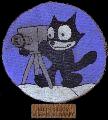obvert
Posts: 14050
Joined: 1/17/2011
From: PDX (and now) London, UK
Status: offline

|
As part of this AAR I'm planning to continue the idea of following units through the war. As I made some blunders early in that one, one of them involving the loss of the I-25 on Dec 9th, I'll begin again with the same ones as during the last game. I plan to update something about them about once a week game time.
Units to watch throughout the War
In addition to giving information about strategic planning and tactical engagements, throughout the course of this AAR I will attempt to follow certain units of different types through their various deployments and actions. Some of the units I have chosen have some kind of significance to my experience, and I will try to explain some of that below.
I may choose some others later as well, as I see how this goes.
DD Shiranui
This ship has special significance to me because it is largely the reason I am playing the game at all. At the invitation of my girlfriend, who lived in Dorking, Surrey at the time, I went into a small modeling shop, Dorking Models.
http://www.dorkingmodels.com/
I was immediately charmed by the throwback look of the shop, with piles of kits balanced on every counter, and many finished display models sitting and hanging everywhere. I had made a bunch of 1/700 series waterline kits of WW2 ships as a kid, and this brought me right back into the passion I felt then about the war. My girlfriend encouraged me to find a kit and buy it. I scanned the stack of ships and saw shoved at the top of a pile the Shiranui.
I had been reading a book about Japan, ‘1,000 Autumns of Jacob De Zoet’ by David Mitchell, (a great read) which features a Mt. Shiranui. I had been intrigued by the name, and looked up the meaning. Shiranui apparently is a Japanese name for the elusive flames that appear in swamps we call will-o-the-wisp.
From Wikipedia
A will-o'-the-wisp /ˌwɪl ə ðə ˈwɪsp/ or ignis fatuus ( /ˌɪɡnɨs ˈfætʃuːəs/; Medieval Latin: "foolish fire"), also called a "will-o'-wisp", "jack-o'-lantern" (or "jack-o'-the-lantern"), "hinkypunk", "ghost-light", "spook-light", "fairy light", "friar's lantern", "hobby lantern", "corpse candle", "orb", or simply "wisp", is a ghostly light or lights sometimes seen at night or twilight over bogs, swamps, and marshes. It resembles a flickering lamp and is sometimes said to recede if approached. Much traditional, non-scientific belief surrounds the phenomenon, giving rise to the wide variety of names.
Without getting too deep, this seemed interesting to me as a metaphor of my memory of childhood, and the vague flickering of images as I recalled afternoons riding my bike down to the model shop, evenings bent over a pile of disarranged plastic sitting in front of the TV watching Hogan’s Heroes, and the moment many years later when I blew the entire fleet apart using an air riffle and a few packs of leftover firecrackers.
In ITRW Shiranui lasted until late 1944, when she was sunk by aircraft shortly after the Battle of Leyte Gulf. She went down near Iliolo.
Her captain is CDR Akazawa, Shizuo.
xAK Oregon Maru
(Possible conversion to AKV or AKE)
This ship will be followed simply because I was born in Portland, OR. I lived there until age 28, when I moved to Seattle, WA.
Hopefully the game version will not meet the same early fate as its WW2 namesake.
On November 17th, 1942, U. S. submarine Salmon (SS-182), attacks a Japanese convoy off the west coast of Luzon and sinks repair ship Oregon Maru, 65 miles northwest of Manila, 14°16´N, 119°44´E.
http://www.wrecksite.eu/wreck.aspx?138888
The ship will be captained by CPT Nasu, U.
I-25
This ship also has something to do with OR. I will not be recreating this scenario, however. Too bad about the backstop, and ironic considering that the Japanese also play and revere baseball.
From Wikipedia
Bombardment of Fort Stevens
In what became the only attack on a mainland American military installation during World War II, the Japanese submarine I-25, under the command of Tagami Meiji, surfaced near the mouth of the Columbia River, Oregon on the night of June 21 and June 22, 1942, and fired shells toward Fort Stevens. The only damage officially recorded was to a baseball field's backstop. Probably the most significant damage was a shell that damaged some large phone cables. The Fort Stevens gunners were refused permission to return fire, since it would have helped the Japanese locate their target more accurately. American aircraft on training flights spotted the submarine, which was subsequently attacked by a US bomber, but escaped.
Lookout Air Raids
Main article: Lookout Air Raids
The Lookout Air Raids occurred on September 9, 1942. The first and only aerial bombing of mainland America by a foreign power occurred when an attempt to start a forest fire was made by a Japanese Yokosuka E14Y1 "Glen" seaplane dropping two 80 kg (180 lb) incendiary bombs over Mount Emily, near Brookings, Oregon. The seaplane, piloted by Nobuo Fujita, had been launched from the Japanese submarine aircraft carrier I-25. No significant damage was officially reported following the attack, nor after a repeat attempt on September 29.
Glens don’t seem to have the same payload capabilities in AE, unfortunately.
A really interesting development had to do with the pilot of the Glen.
Twenty years later, the floatplane's pilot, Nobuo Fujita, was invited back to Brookings, and served as Grand Marshal for the local Azalea Festival.[1] At the festival, Fujita presented his family's 400-year old samurai sword to the city as a symbol of regret. Fujita made a number of visits to Brookings until the end of the century, serving as an "informal ambassador of peace and friendship".[2] Fujita died in 1997, the same year Brookings made him an honorary citizen.
I tried to find this pilot in the replacement pool, but he wasn’t there. If I locate him on another sub I’ll put him onto I-25, assuming he doesn’t suck.
Also, I couldn’t find the listed captain, Tagami Meiji, either. Not that important at all, just thought it might be fun to have them on there.
The current captain of I-25 is CDR Sagara, K.
AMC Hokoku Maru
(The word hōkoku, when written 報国, means "devotion to the country".)
I am a photographer and teacher of photography and film. While looking at AMCs I was surprised to learn that Hokoku was also the name of a pre-war Japanese camera type, a 4.5 x 6 inch folder camera.
http://camerapedia.wikia.com/wiki/Hokoku
I am fascinated by the idea of these merchant raiders during WW2, and find the multiple roles they played throughout the war to be worthy of documenting.
Captain Koh, A.
Tainan Ku S-1
I will follow the Tainan fighter group. I chose this group because it produced so many of Japan’s early aces, including Saboro Sakai. Since the developers have been so studious and included Sakai and other aces in the group, I’ll try to keep them active and alive and report on their exploits.
http://en.wikipedia.org/wiki/Tainan_Air_Group
The group’s current leader is LT Shingo, H.
14th Tank Regiment
I want to follow at least one land unit, but I couldn’t decide how to pick one of significance. I chose the 14th Tank Regiment simply because my birthday fell on the 14th of October.
The group’s leader is LTC Aizawa, Takhuji.
Nagato Maru
One of my favorite feats of WW2 is the Doolittle Raid on Japan. Until reading more recently, I had no idea so many IJN boats were out there as patrol ‘picket’ boats protecting the approaches to the Home Islands.
The Nagato Maru was one of the unfortunate ones to be damaged by air attack and subsequently sunk by USS Nashville.
Halsey-Doolittle Raid: TF 16 (Vice Admiral William F. Halsey Jr.), formed around carriers Enterprise (CV-6) and Hornet (CV-8), approaches to within 650 miles of Japan. Discovery by Japanese guardboat No.23 Nitto Maru compels Vice Admiral Halsey to order Hornet to launch 16 USAAF B-25s (Lieutenant Colonel James H. Doolittle) earlier than planned.
SBDs (VB 3, VB 6) and F4Fs (VF 6) from Enterprise, meanwhile, attack Japanese guardboats ("picket" boats) encountered near TF 16, damaging armed merchant cruiser Awata Maru and guardboats Chokyu Maru, No.1 Iwate Maru, No.2 Asami Maru, Kaijin Maru, No.3 Chinyo Maru, Eikichi Maru, Kowa Maru, and No.26 Nanshin Maru. Guardboats No.23 Nitto Maru and Nagato Maru, also damaged by SBDs and F4Fs from Enterprise, are sunk by gunfire of light cruiser Nashville (CL-43) (see 19 April).
http://www.ibiblio.org/hyperwar/USN/USN-Chron/USN-Chron-1942.html
The Ansyu-C Cargo Class Nagato Maru can and will be converted to a PB.
< Message edited by obvert -- 12/2/2011 3:43:59 PM >
|
 Printable Version
Printable Version















 New Messages
New Messages No New Messages
No New Messages Hot Topic w/ New Messages
Hot Topic w/ New Messages Hot Topic w/o New Messages
Hot Topic w/o New Messages Locked w/ New Messages
Locked w/ New Messages Locked w/o New Messages
Locked w/o New Messages Post New Thread
Post New Thread